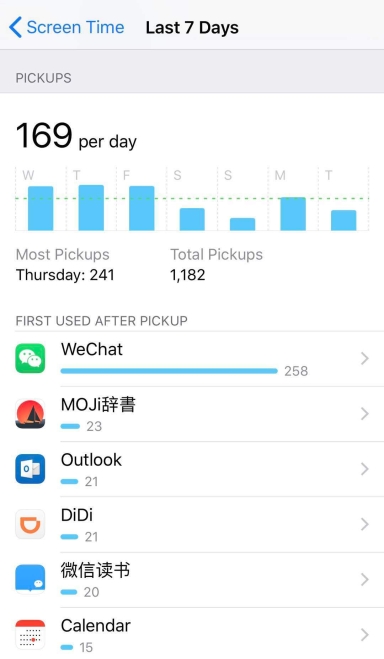Since I relocated to Beijing from Silicon Valley, one of the questions I got most frequently has been: “So how do you like working in China?” Below are some observations so far. These are just my personal experiences and by no means representative of all professionals in China’s tech industry.
1. “Work”, as we know it, is basically a struggle to reply to WeChat messages. On any given day, I probably receive several hundred WeChat messages (this is not counting large WeChat groups) for work. Business plans, legal documents, and due diligence files are sent over WeChat. It is very common for professionals to have tens of thousands of unread messages on WeChat. Consider it your email inbox, except that every sentence within an email is broken down into separate messages, so the number of unread messages multiplies. Since WeChat messages come at all times and many require immediate response, people are constantly interrupted and distracted during meetings. If you think American teenagers have short attention spans, adults in China’s tech circle are even worse. It takes extraordinary discipline to have “WeChat hygiene”: to mark every message that needs to be dealt with as “unread”, to set reminders for messages that require later responses, to go through your contact list and add appropriate tags… One day, before I went to bed, I achieved zero unread messages on WeChat, and I felt an exhilaration that “Inbox zero” brought to me in the US. But of course, when I woke the next morning I had 30 unread messages, and the struggle started all over again….

2. Working in China means processing a much higher volume of information, people, and deals on a daily basis. It is not uncommon to have back-to-back meetings from morning to midnight, with no breaks in between. We often meet and eat at the same time since there is simply no time for lunch/dinner. In the US, I sometimes get the impression that dinner is considered sacrosanct “family time” and very few people meet for business over dinner. Not in China. Here, it is very common for people to do dinner meetings and even drink meetings afterwards. Very often, colleagues grab dinner together casually before going back to work. In parts of Beijing with many tech or finance companies, ride-hailing apps like Didi have surge pricing at 10pm, when everyone is finally leaving work to go home.
3. People in China are on their phones ALL THE TIME. Don’t be offended if your dinner date looks at at her phone every 15 minutes during the meal. At virtually every large dinner gathering I have been to in China, there are moments when everyone just falls into silence halfway through a meal and starts replying to WeChat messages on their phones for the next five minutes. Like many people who are accustomed to Western manners, I first found this attention deficit very rude. But after a while, you realize that it’s become such a norm that even polite people do it. Some people have truly urgent matters to deal with, and because WeChat is an instant messenger, many feel like they are expected to reply to everything instantly. Nevertheless, I still try my best to put my phone away during meals with other people as I want to give my full attention to maximize our time together.

4. Chinese people in business and tech have very straightforward communication styles. You might think that Chinese culture is traditionally more reserved than Western culture, and people make roundabout statements whose meanings are hard to grasp without reading between the lines. Well, not anymore (at least in the tech circle). Because everyone is so pressed for time (for the reasons outlined above), they have no patience for small talk, giving rise to many transactional interactions. I have been to meetings where the first thing my counterpart asks me is: “So what good deals have you seen lately?” Without even bothering to get to know me as a person. Personally, I don’t agree with this approach because I think every business is a “people business” and it is necessary to build trust and rapport before talking about work-related matters. The question is: When you have so little time, how do you approach relationship-building, which takes time?
5. Working in China is dynamic – in every sense of the word. People are always late and many things get scheduled or cancelled at the very last minute. Unlike in the Bay Area, where people send each other calendar invites for coffee chats weeks in advance, in Beijing it is not unusual to receive dinner invitations the day of. Calendar invitations are rarely sent, since nobody uses emails. For every 10 meetings scheduled, expect 2-3 to get cancelled or rescheduled at the last minute. This is a very common situation: I schedule a meal with Friend A for a Sunday dinner. On Saturday, Friend A tells me that he can’t make it anymore because he had to go to Shanghai for a meeting. So I tell Friend B that I can meet her for Sunday dinner. On Sunday morning, Friend A tells me that his Shanghai trip is cancelled because the person he was supposed to meet bailed on him, so he can have dinner with me after all. So I ask Friend B if we can reschedule. Friend B then tells her friend C (whom she had bailed on earlier) that her friend bailed on her and she can have dinner with her after all…. and so it continues. After a while, I just gave up trying to plan things ahead of time and became a lot more zen, partly leaving my schedule to fate.
6. Numbers in China are much bigger. I have met startups in the US that proudly tell me that they have attracted “tens of thousands” of users. I think to myself: By Chinese standards, that’s basically family and friends. Working in China means getting used to numbers in the millions and billions. Once, I mentioned a Korean company to a Chinese friend, and she basically responded, “Why do you even care? South Korea is as big a market as a Chinese province.” Keep in mind that Shanghai has more people than Australia, and Beijing feels like an amalgamation of five different cities, each the size of New York. When your mental framework is calibrated to the world’s largest consumer Internet market, everything else starts to look like peanuts.
7. Even though China is such a big country in terms of land area, it doesn’t feel big because inter-city transportation is so convenient. Thanks to the world-class high speed trains in China which make the US look like a third-world country, it is possible to go to another city at a moment’s notice. Because our company has dual offices in Beijing and Shanghai, many people travel between the two cities frequently and bring suitcases to work. Keep in mind that Shanghai is as far from Beijing as Florida is from Chicago. The high-speed train between the two cities takes only a little over four hours (the flight takes two hours), and the ticket costs roughly $80. Because there is usually cellphone signal (and sometimes even WiFi) on the train, I always manage to get a lot of work done on the road. The high-speed train from Shanghai to Hangzhou takes 45 minutes, and a one-way ticket costs $10, so it is possible to live in Shanghai and commute to Hangzhou for work. In fact, it would be more convenient than the San Francisco-Palo Alto commute, even though the distance is three times as long (100 miles versus 33 miles). Back in the Bay Area, where I commuted between San Francisco and the South Bay, I had to take the hideous Caltrain which was painfully slow, constantly delayed, and shockingly overpriced. If I was in a rush, the Uber ride would cost as much as $60, which is enough to buy me a nice Xiaomi rice cooker in China.
8. Information overload is the norm. On any given day, you receive dozens of WeChat articles from various media accounts, group chats and WeChat Moment, with headlines all screaming for your attention. You can literally go through entire days just reading tech news and commentary, without doing anything else. How to decide what to click on? What is worth my time, and what is not? These are questions I grapple with every day. If I read too much news, I have no time to digest all this information and do actual productive work. If I don’t read news, I start to feel this FOMO: “It seems the whole world has read about XX and already has an opinion on it; why haven’t I heard about this till now?!”
Overall, if I were to sum it up with one word, it would be “充实” which roughly translates into “fulfilling”. Although it feels like you are scrambling and hustling from meeting to meeting every day without end, the learning and growing are also happening at a rapid pace. China is one of those places where just being there is an educational experience, and I recommend anyone in tech – Chinese or not – to explore working in China at some point throughout their career.
P.S. I co-host “GGV 996”, the most popular English podcast on tech & entrepreneurship in China. “996” stands for the work schedule of Chinese tech: 9am-9pm, 6 days a week. This might be one of the best ways to get a taste of what it’s like to be in tech in China, short of moving there. You can take a listen at 996.ggvc.com or search “996” on any podcast platform.
And here’s a list of resources to learn more about tech in China.

Very insightful article Zara on your personal experience living there to date. Enjoy your experience shares and looking forward to reading more.
Your description of dealing with WeChat sounds overwhelming. I’m wondering how you deal with important messages that you don’t have time to take care of at the moment. With email it is really simple to flag and get back to later. With WeChat, I can imagine you can easily lose track of important messages.
Spot on, and well done specifically avoiding sounding judgemental. Unfortunately, everything you mention are manifestations of inexperienced, undisciplined and disorganized work styles, which will inevitably produce stress, anxiety, and burnout in everyone. I’ve been working here a long time, I feel like I’m the only person I know with any free time.
Thank you for the great article,
D
Wow this is fascinating! Thank you so much for sharing your experiences. I can’t even begin to imagine how overhwelming it is with WeChat and the 996 schedule with the constant rush from meeting to meeting. You are a rockstar.